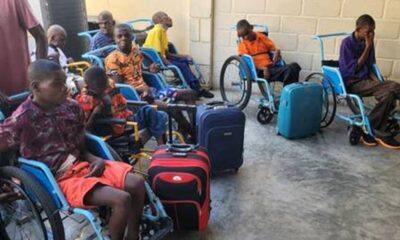By Dana Malcolm
Staff Wrtier
#Jamaica, November 18, 2022 – Earlier this week Jamaican Prime Minister Andrew Holness announced he was instituting more States of Emergency (SOE) in seven parishes in Jamaica. The SOEs which allow for manned checkpoints, curfews, patrols and other military aided peacekeeping efforts were being used because, the Prime Minister maintained, “The level of crime in our country is over and above the capacity of our regular law enforcement,” he said. “It is clear that we are facing an emergency. Even war torn countries have a murder rate less than Jamaica. Gangs are morphing– they are trying to corrupt the state.”
The factors driving this extraordinary level of crime are eerily similar to the factors driving a major uptick of crime in the Turks and Caicos Islands.
Antonette Weymss-Gorman, head of the Jamaica Defense Force Rear Admiral explained what exactly the country was fighting.
“Through our analysis and intelligence gathering we continue to recognize the influence of gangs as a primary contributor to violence with with illegal weapons and ammunition. Their criminal and violent actions continue to be fueled by the ill-gotten gains of extortion, contract killings, lottery scamming and other forms of criminality,” She explained that infighting was taking down innocents as well.
explained that infighting was taking down innocents as well.
“These gangs are continuously engaged in intense intra and inter-gang conflicts which are a leading cause of high levels of murders and shootings across the country.”
Jamaica and certainly by now the Turks and Caicos sit very near the top of the list for the highest murder rates in the region and the world. While the TCI’s murder rate may skate below the global radar this year thanks to being considered a part of the UK residents of both countries, who have to face the violence may be wondering, how did it get this bad?
Major crime waves like these in relatively small-island states can seem like they came out of nowhere but Holness belays that assumption saying a lack of preparation contributed heavily to the crises.
“It is not a situation that is unique to Jamaica. Many island states have not looked at national security in the sophisticated way that they needed to over the last thirty years to make the investments they needed in intelligence gathering, communication, transportation, border control, and investments in the training of our security forces.”
It’s an observation that rings particularly true in the Turks and Caicos as country leaders have just begun in the last few years to seriously put in the work to create a border force, a defense force in the form of the Regiment, armored vehicles, a coast guard and digital security capabilities at our ports. All of this work is ongoing, some of it in early stages still.
Meanwhile criminals have made inroads into the Islands and set up their own chain of command and shipping routes as evidenced by the recent bust of several shipments of weapons in the US that were bound for the TCI.
Nigel Dakin, Governor of the Turks and Caicos Islands had indicated he would not be bringing in any military operation until it was absolutely needed because soldiers are not trained to police. However, residents have over weeks been awaken to the sound the sight of military styled choppers overhead and this week, coordinated road checks slowed traffic to a crawl.
Jamaica, while executing these extreme measures over the next four weeks, is promising to adhere to the human rights of residents and visitors; having already been bruised by several Supreme Court law suits alleging abuses.
For now both governments continue to grapple with their respective, but connected, crime waves.


 Caribbean News7 days ago
Caribbean News7 days ago
 Caribbean News7 days ago
Caribbean News7 days ago
 Caribbean News1 week ago
Caribbean News1 week ago
 Caribbean News7 days ago
Caribbean News7 days ago
 Bahamas News7 days ago
Bahamas News7 days ago
 News7 days ago
News7 days ago
 Bahamas News1 week ago
Bahamas News1 week ago
 News7 days ago
News7 days ago























